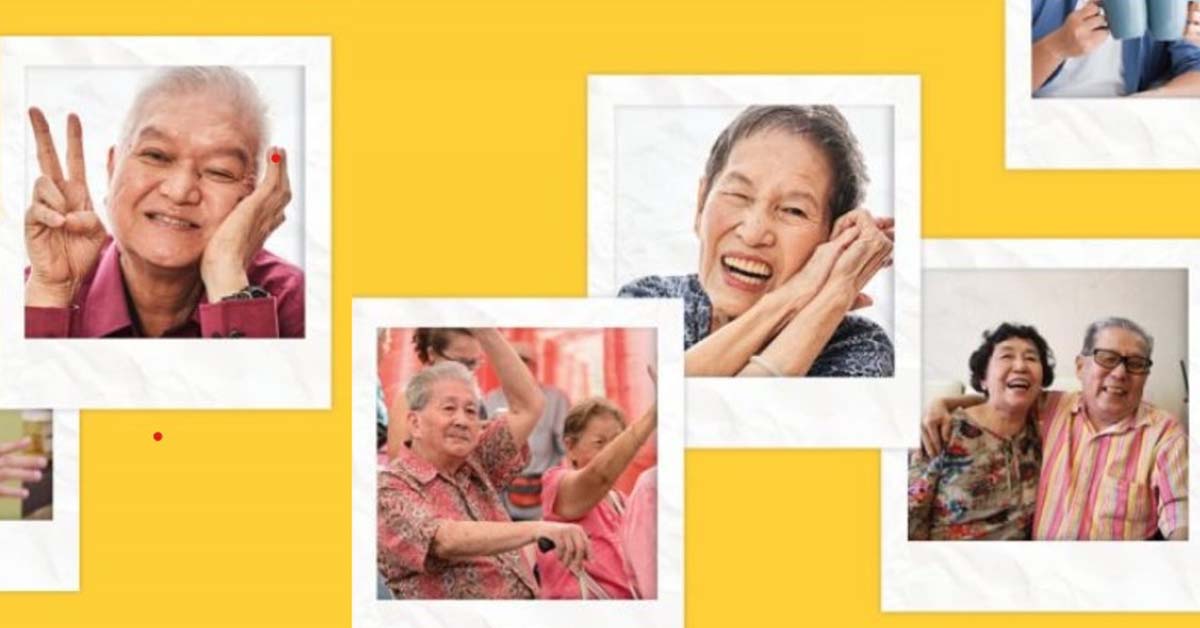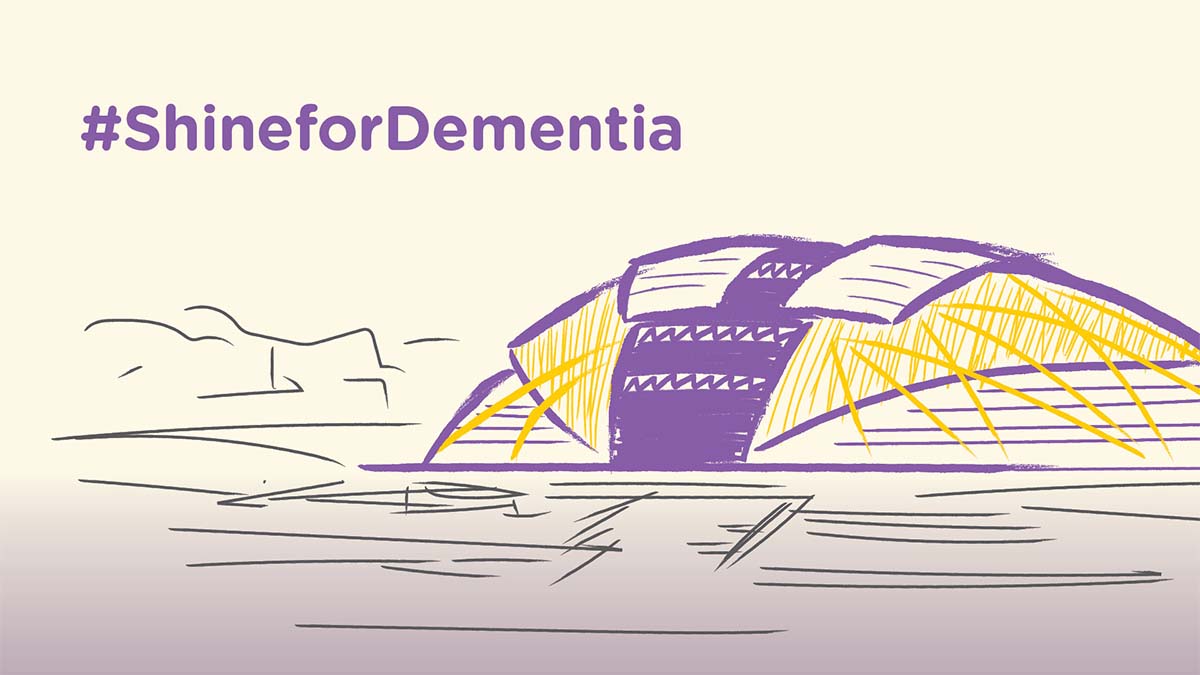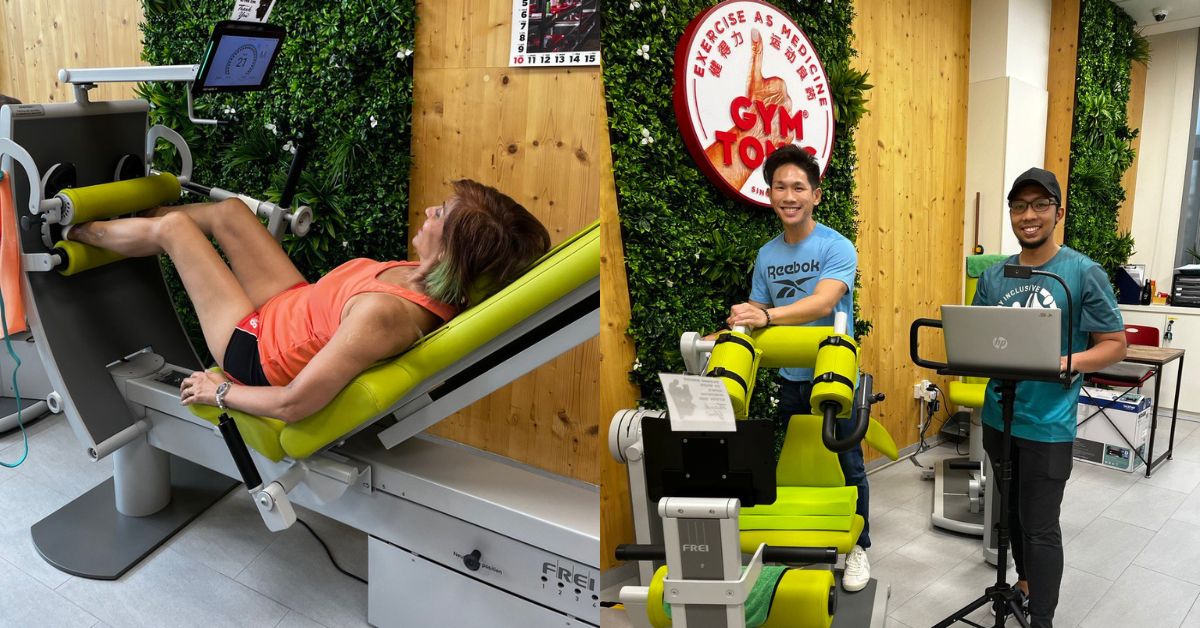
The news that a family member has dementia is almost universally traumatising, if not devastating.
That is why it is all the more comforting to learn about the stories of families who have transcended the initial distress, accepted and even embraced the situation, and then moved on to a life with a new sense of purpose.
One commonality of those who have successfully learned to live with dementia in the family is that they see life as a journey of discovery — discovery not only of their family members, neighbours and community, but also discovery of themselves.
They seem to gradually become more philosophical and less materialistic as they develop new appreciation for what is of genuine value in life. Throughout this journey they, and the persons they are caring for, have developed renewed dignity and pride.
We asked two such inspiring caregivers about their experiences: The first is Ms Belinda Seet, caregiver for her mother, Mrs Katherine Seet; the second is Mr Daniel Lim, caregiver for his father, Mr Peter Lim.
Advertisement
1. What were some of the first things you noticed that made you wonder if your loved one had dementia? What went through your mind?
Belinda Seet: At first, I wasn’t aware as I have never been with other people living with dementia. My mum came home one day and informed us that she had been having blackouts and had lost her way when driving home.
The first thing that went through my mind was despair. I had just heard that a friend had brain cancer and my dad had been diagnosed with cancer. My sister comforted me and made an appointment with a neurologist. When we found out it was dementia, I was devastated, but I knew that death was not imminent and I wanted to make both my parents as happy as I could. So, with their blessings, I decided to resign from work to be their main caregiver.
Daniel Lim: Dad would forget how to come home. In the earlier years, he spent time walking around the estate, finally finding familiar landmarks to guide him. Once, we lost him for eight hours; he wanted to go for a haircut and went to the former location of his barber. Over time, he lost the ability to orientate himself and go from place to place.
These were red flags and didn’t feel or look like part of normal ageing, but I didn’t understand exactly what it was. There weren’t many resources or information available then and I didn’t know where or who to turn to for support. On bad days, it felt like I was alone at the bottom of a well, totally isolated, emotionally drained and empty. I even had suicidal thoughts. My iHealth app told me I needed to sleep more; I was only sleeping an average of three hours a night.
2. How did others react when they found out? What about relationships with friends and relatives?
Daniel Lim: To be candid, relatives could not understand the situation. There were plenty of moments of denial. Even now, relatives don’t ask much about his condition and how we are progressing as a family. Only a few relatives visit us.
Belinda Seet: My friends were understanding but pitied me, although I told them I was alright. Many of my mum’s friends started drifting away as they felt she wouldn’t be able to converse intelligently with them. I felt sad when they called and talked with me instead of her.
3. Have you considered a dedicated care facility for your parent?
Belinda Seet: No. Those facilities are institutionalised and very regimented. I want my mum to be able to make her own choices of activities, food etc., which she still does after 12 years. I feel that the ability to make decisions with loving support is important for persons living with dementia.
Daniel Lim: We visited a facility in Tampines recently. I liked the place, and their engagement practices seemed to be top notch. However, an institution can never match the warmth of family presence. This is worse now due to Covid-19, as visits to such care facilities are not allowed.
4. How do you hope others will treat people with dementia?
Belinda Seet: My hope is that people will treat persons with dementia with dignity and respect; people living with dementia are not stupid and should not be treated that way. They still need friends and people to communicate with.
Daniel Lim: For persons living with dementia, look beyond the cloudy lens; there will still be character, identity, personality. And please allow our loved ones to live with dignity.
And for caregivers, be patient with us and be willing to give empathy, not pity. Don’t dismiss the anxiety and fear that caregivers and their loved ones have; they are very real. Just be there, even if it is only to listen and provide assurance that we are not alone. Allow us to heal in our own way, especially at the workplace. And please don’t judge us when we disclose our worries.
My dad is still able to continue with his daily activities. He started advocacy work by sharing at conferences and even securing product endorsements. Please allow our love ones to display how differently abled they are.
5. As a caregiver, no doubt some aspects of your relationship with your loved ones have changed, but what has remained the same?
Belinda Seet: Our relationship has shifted. I am now carer, mummy (sometimes), nurse and playmate, but our love for each other remains. Sometimes, when she wants to be the mummy to look after us, we allow it — if it is not dangerous.
Daniel Lim: Nothing has remained the same. I say this in both a positive and negative sense. My relationship with dad was never great. We didn’t have deep conversations and he wasn’t there for me when I was growing up. But on the positive side, I now get good “lightbulb” conversations with him and moments we capture on camera. So, when I grow old, these are the moments I will treasure. I also get to discover amazing moments that I otherwise would never have known.
This experience has allowed us to bond. My dad inspired me to set up a social enterprise to look into issues with caregiving and persons living with dementia. My mum taught me that, no matter how hard life is, as long as we are facing challenges together as a family, we will see the rainbow after the storm. Appreciating what we have has always been part of my family’s value system.
6. What advice or tips would you give to others caring for a person with dementia?
Belinda Seet: Listen to them. If they are frustrated or angry, it means they are trying to communicate that something is not right. Observe to understand their needs and how they communicate. Play easy games that make them feel that they can win too. It helps them with positive self-esteem. Engage them in creative activities — it helps them maintain their cognitive abilities.
Daniel Lim: We can always ask better, tell better and suggest better. And, as a final point, please ask your love ones how they like to be cared for. Owning these conversations with them is critical in this caregiving journey.

Watch out for our National Stadium lighting up in purple and yellow on World Alzheimer’s Day on 21 September 2021 as a show of solidarity for the dementia community.
More information on Dementia Singapore’s website: https://dementia.org.sg/2021/09/16/national-stadium-to-light-up-in-purple-and-yellow-on-world-alzheimers-day/






